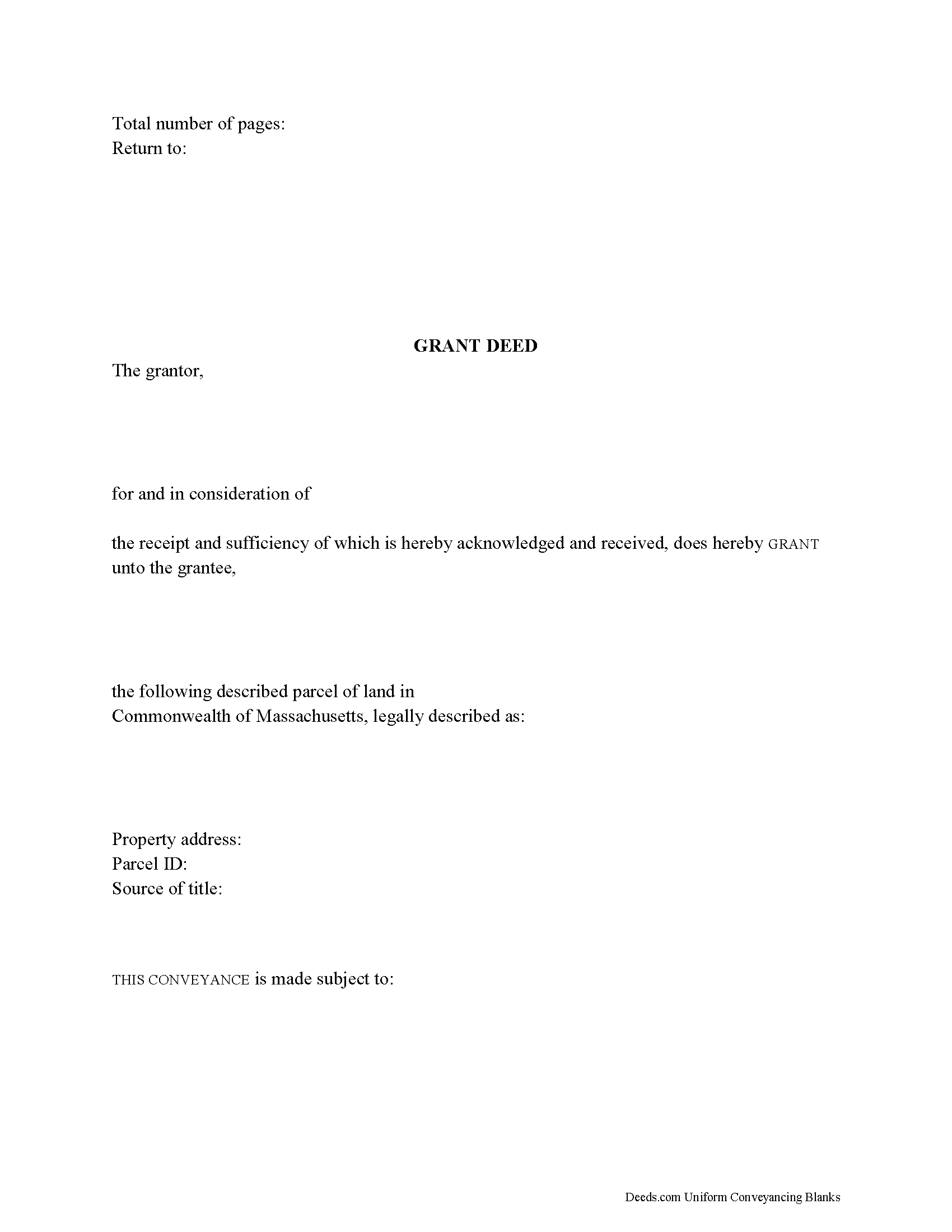Download Massachusetts Grant Deed Legal Forms

Massachusetts Grant Deed Overview

Real estate conveyances in Massachusetts are governed under Massachusetts General Laws Chapters 183 and 184. While the statutes do not specifically mention grant deeds, they are still useful for conveying title to real property in the state.
A grant deed transfers the right, title, and interest in real estate from the grantor (seller) to the grantee (buyer). Grant deeds typically include explicit covenants that the grantor is seized of, or owns, the land granted, has the right to convey the land, and that the deed discloses every lien or encumbrance associated with the property.
In addition to meeting all state and local standards for recorded documents, a lawful deed identifies each grantor and grantee by name, address, and marital status (G.L.c. 183 sec. 6). State law requires that all land records contain information on how the grantee will hold title (G.L.c. 184 sec. 7). For Massachusetts residential property, the primary methods for holding title are tenancy in common, joint tenancy, and tenancy by the entirety. A grant of ownership of real estate to two or more persons, regardless of marital status, is presumed to create a tenancy in common, unless the deed expressly states otherwise (G.L.c. 184 sec. 7).
As with any conveyance of real estate, a grant deed requires a complete legal description of the parcel. The deed must state the amount of the full consideration, or the total price paid by the grantee for the transfer (G.L.c. 183 sec. 6). Based on the consideration paid, the seller pays an excise tax (also known as a transfer tax or stamp tax) to the Registry of Deeds' office (G.L.c. 64D sec. 1,2).
Record the completed deed at the local County Registry of Deeds office. Some counties (Berkshire, Bristol, Essex, Middlesex, Worcester) are split into two or more recording districts. Make sure to record the deed in the correct recording district. If the deed pertains to registered land, submit the deed to the Registry District of the Land Court. Include all relevant affidavits, forms, and fees along with the deed for recording. For guidance related to supplemental documentation, speak with the local Registry of Deeds office.
This article is provided for informational purposes only and is not a substitute for legal advice. Contact a lawyer with questions about grant deeds or transfers of real property in Massachusetts.
(Massachusetts GD Package includes form, guidelines, and completed example)